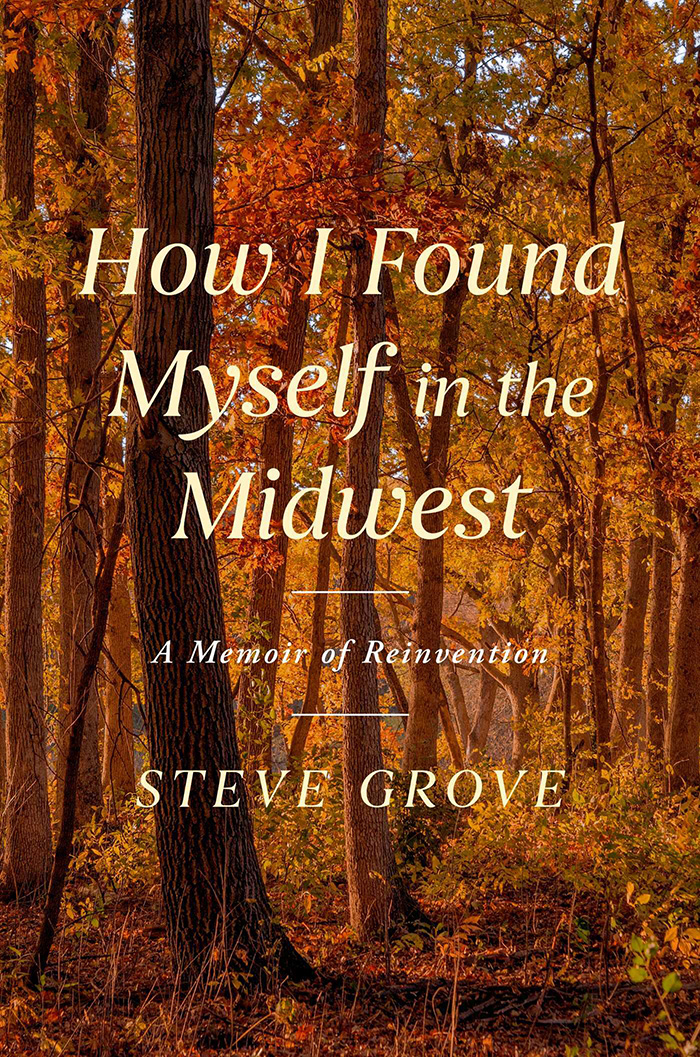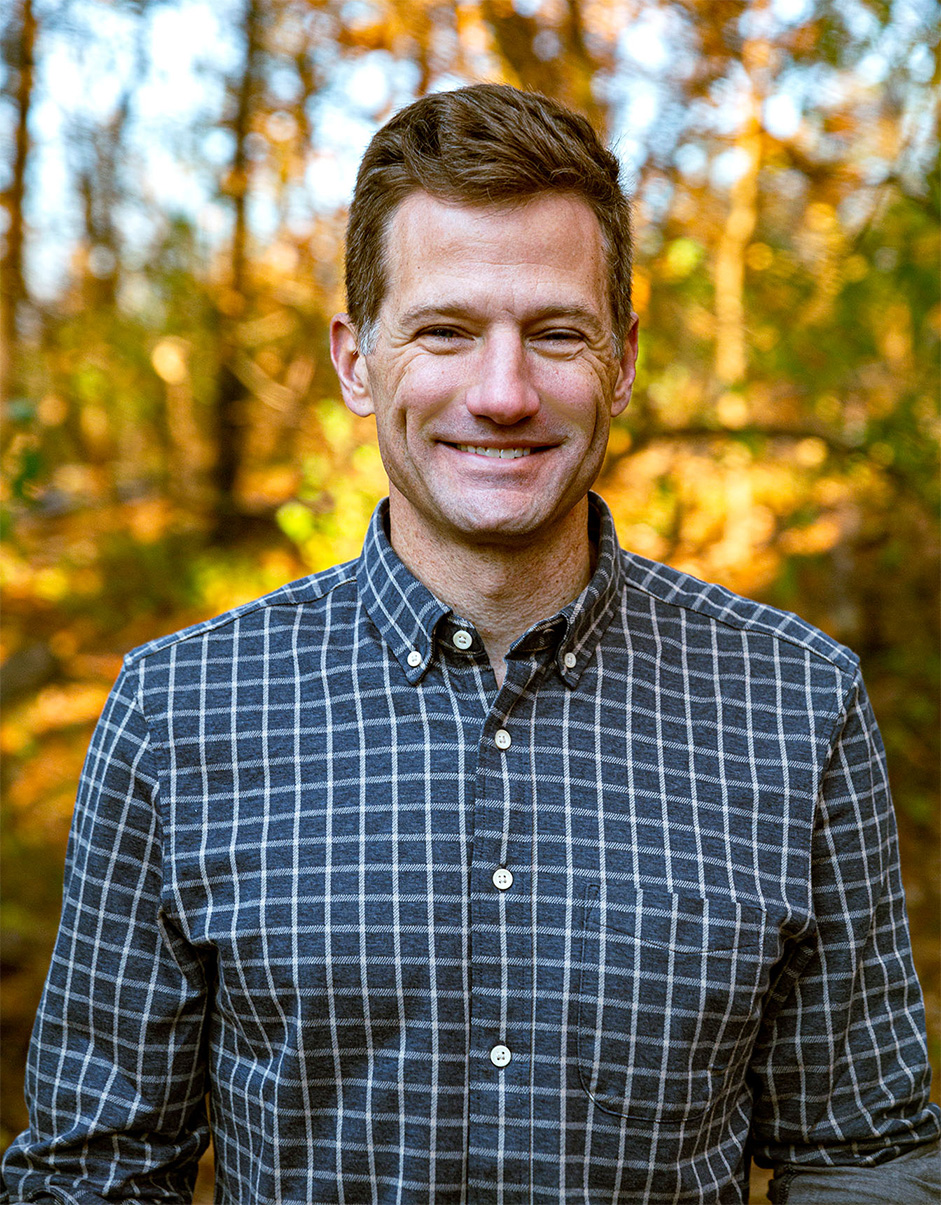Steve Grove ’00 found himself at CMC after the kind of epiphany that often strikes an eager 19-year-old itching for adventure:
Perhaps this is my time to move away and explore.
A decade and a half later, he found himself in Minnesota after the kind of epiphany that often strikes when you’ve challenged yourself professionally and are itching to settle down in your 40s:
Perhaps this is my time to return home.
Grove, who grew up in rural Minnesota, attended nearby Carleton College for a year before transferring to CMC to play football and run track (his CMS sprint medley record with three others still stands). Drawn to CMC’s economics and government focus, he also saw a unique opportunity to combine his growing interests in politics, policy, media, and journalism.
“CMC was a big moment for me,” said Grove, who majored in Philosophy, Politics, and Economics (PPE). “There’s something about leaving your home state and getting on a plane to go to college. I didn’t know where it was going to lead, but I think I needed to do that.
“I also can’t say enough about the liberal arts. It gave me a great backdrop for so much curious and critical thinking. I mean, every other week in PPE classes, I’d find myself writing a 10-page paper, and together in class, we’d all tear each other’s arguments apart in the best, positive ways. You’re talking about being led by professors like Gordon Bjork, John Roth, and Ward Elliott—just icons. They did not suffer fools.”
The combination of balancing intellectual and athletic rigor, coupled with fond memories of the Athenaeum—“you can’t talk about the value of CMC without noting how important it is to engage with different viewpoints at the Ath”—gave Grove the “confidence and possibility” to keep pushing himself to try new things.
After graduating, he taught English in Japan before moving to Boston to get a taste of journalism as a stringer for The Boston Globe. He pursued his Master’s in Public Policy at the Harvard Kennedy School, figuring it would set him up to “at least be a smarter journalist or get me into another field related to information and the public sector.”
But Grove couldn’t have predicted how, in a flash of digital disruption, he’d find himself with a front row seat to the online video revolution.
While at Harvard, Grove discovered YouTube, then in its infancy as a video sharing site—and he saw what it could be. “It was media. It was politics. It was democracy. It was innovation,” he said. “What more could you want to do?”
Grove was hired as YouTube’s first news and politics editor, where he led the curation of videos for the home page and launched the first-ever web-to-TV political debate format with CNN. One by one, YouTube convinced political heavyweights of the mid-to-late 2000s, whether President Barack Obama, John McCain, or Hillary Clinton, to start YouTube channels and create a “kind of global town hall for conversation.” His Q&A sessions with President Obama, in particular, were instrumental in showing how the Internet could connect viewers directly with political candidates and reach a global scale.
“I landed at just the right time with the company—and I was in a lot of meetings that I had no business being in,” Grove said, laughing. “So many people would show up and ask, ‘What are these viral videos I’m hearing about?’ ‘ What is this new thing?’ Because Facebook and social media hadn’t really broken through yet, so we were at the forefront of something revolutionary. It was a fun period of history to be part of.”

From there, Grove became the founding director of the Google News Lab, where he also led the company’s civic engagement work, including its nonpartisan voter information and get-out-the-vote efforts. But after 12 years of rising through the ranks in Silicon Valley, Grove also began to see the downside of the growing technology bubble—challenges of misinformation, manipulation, and technology addiction that are common in today’s headlines.
Just after turning 40, now married to a fellow Google executive, Mary, and the father of two young twins, Grove and his family decided to make a bold pivot—and bet on a familiar place from his past, Minnesota. In 2019, by moving from Google to government as commissioner of the Minnesota Department of Employment and Economic Development, Grove joked that he’d traded “the world’s fastest, scrappiest, and most innovative tech company for a slow, bureaucratic government agency.” However, his Silicon Valley skills proved especially handy when, during the height of the COVID-19 pandemic, Grove had to stay nimble and distribute billions of dollars in aid to Minnesota citizens and businesses.
Grove’s past unexpectedly came calling again in April 2023: This time, when he was offered a chance to run the Minnesota Star Tribune in Minneapolis, the largest news organization in the Upper Midwest. While Grove thought he’d left journalism behind, the former CMC Forum editor said the challenge of rebuilding faith in local media spoke to the roots of public service that brought him back home in the first place.
“I didn’t have the publisher of a 157-year-old newspaper on my dance card,” Grove said. “But I thought, if we could give this important institution some new energy, maybe this is a shot to make a different kind of impact?”
Grove’s California to Minnesota journey is further explored in “How I Found Myself in the Midwest,” a memoir being released by Simon & Schuster in June. The book is about staying humble and being open to reinvention, Grove said—or how grounding yourself in something local can make a tangible difference in a world of nationalized politics that is constantly trying to “convince us we’re so divided.”
“I was very lucky to work in places that had global reach. It was awesome, really. But going local, going home, has been some of the most inspiring work I’ve ever done,” Grove said. “I feel like (coming back to Minnesota) allowed me to cut through a lot of the noise and contribute to having a direct impact on the people I live with, on the lives of my kids and my family.
“When I tell people about my decision to leave Silicon Valley for the Midwest, the response has often been, ‘Oh, wow. That’s unique!’ So, I certainly hope the book offers some inspiration for others. I think, as Americans, sometimes we forget that we can build community and make a difference right outside our door.”
